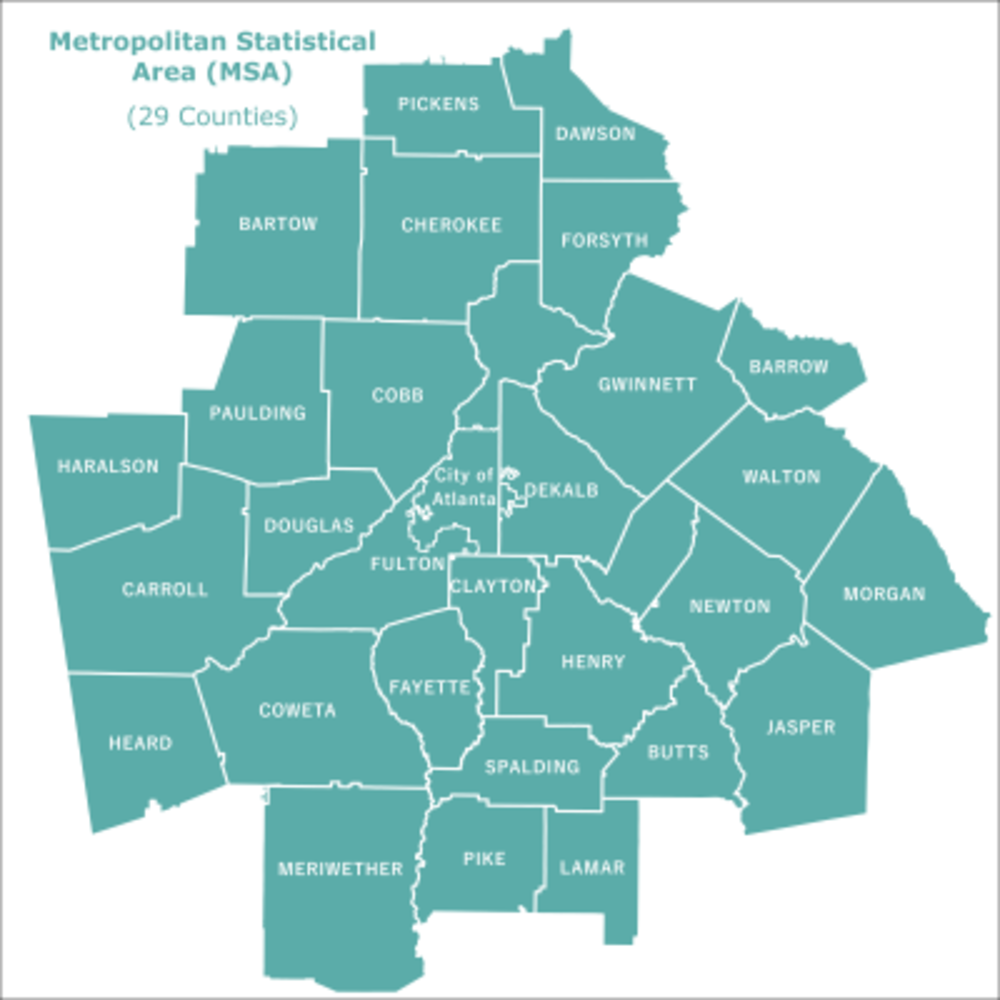Metro Atlanta Climate Action Plan
Metro Atlanta Climate Action Plan
In 2025, the Atlanta Regional Commission developed the Metro Atlanta Climate Action Plan (MACAP) for the 29-county Atlanta Metropolitan Statistical Area. The plan is intended to serve as a roadmap to create a sustainable and resilient future for all, while also highlighting strategic initiatives to transition to near net zero greenhouse gas (GHG) emissions by 2050. This site serves as the public-facing project hub for the MACAP.
Your participation and input into the plan was key as ARC identified the most impactful climate actions, the potential impacts on communities, as well as the benefits to the region’s workforce and economy. The final MACAP document and related project stakeholder webinars appear in the sidebar of this page. Now that the plan is complete, we will continue to provide opportunities here for you learn about what is in the plan and how you may put it to use. Sign up below to receive updates about future MACAP surveys and activities.

Climate Priorities Survey
The Atlanta Regional Commission is developing the first comprehensive climate action plan for the 29-county Atlanta Metropolitan Statistical Area. The Metro Atlanta Climate Action Plan (MACAP) will...

Community Visioning Survey
The year is 2050 and metro Atlanta has met its climate goals. You are writing a postcard from your future self to your current self in 2025. What changes took place to make metro Atlanta...
WHAT COUNTIES DOES THE PLAN COVER?
The MACAP covers the 29-county, 150-city Atlanta Metropolitan Statistical Area (MSA) as defined by the U.S. Census, Office of Management & Budget.
FOCUS AREAS IN THE PLAN?
TRANSPORTATION: Increasing options for more people to walk, bike, take public transportation, or use electric vehicles will help reduce transportation-related GHG emissions so our region has cleaner air to breathe.
BUILDINGS: More efficient heating & cooling will have multiple benefits including more comfortable homes & workplaces, improved community health, greater resilience in the face of extreme weather & other emergencies, & reduced energy costs for residents & building owners.
ENERGY: To decrease harmful emissions, we need to transition to meet the energy needs of our homes, businesses, & vehicles with renewable sources of energy. Renewable energy includes energy from sunlight, biogas, & geothermal heat.
WASTE: Reducing the amount of waste created by our communities, composting, and recycling can help reduce GHG emissions and the need to extract additional natural resources.
NATURAL LANDS: Restoring, protecting, and expanding natural systems provides a natural defense against climate change and can lessen the impact of flooding and urban heat as well as absorb emissions.
WORKFORCE: The shift to net zero GHG emissions creates job opportunities in renewable energy, energy efficiency, and sustainable technologies. This not only addresses climate concerns but also stimulates economic growth and employment.
COMMUNITY: Addressing climate change is crucial to lessening its impacts and to strengthening the ability of metro Atlanta communities to withstand and recover from extreme weather events. This can include measures that not only reduce emissions but that also strengthen the social fabric of communities, prevent negative health impacts, and offer options for communities/businesses to secure funding for local projects.
AND MORE!
WHERE CAN I FIND THE PLAN?
The Metro Atlanta Climate Action Plan consists of a plan document and 8 appendices that provide additional information about what is in the plan. They can be found on ARC's Climate Pollution Reduction Grant webpage.
Frequently Asked Questions
Climate change is any significant change in precipitation, wind patterns, temperature, and/or other patterns that continues over several decades. Overwhelmingly, human-driven activities have led to increased greenhouse gases (GHGs) in the atmosphere. This in turn has raised Earth’s average surface temperature. Climate change has already led to severe weather events globally and in metro Atlanta, impacting infrastructure, ecosystems, homes, and more.
Higher temperatures pose many risks to metro Atlantans, including health complications like heat stroke an dasthma attacks due to poor air quality in the summer, storm damage to homes and businesses, and financial stress from higher energy, grocery, and other bills.
There are many things that can be done to address climate change and mitigate its negative effects. This includes individual actions like home energy efficiency improvement, choosing low emission transportation options, planting trees and more. It also includes larger-scale, community level actions such as building retrofitting, adding sidewalks and bike baths, and producing clean energy for the grid. Check out the Drawdown Georgia Solutions Library for details on many actions that help out us on a path to a low-carbon, high quality of life future for all.

